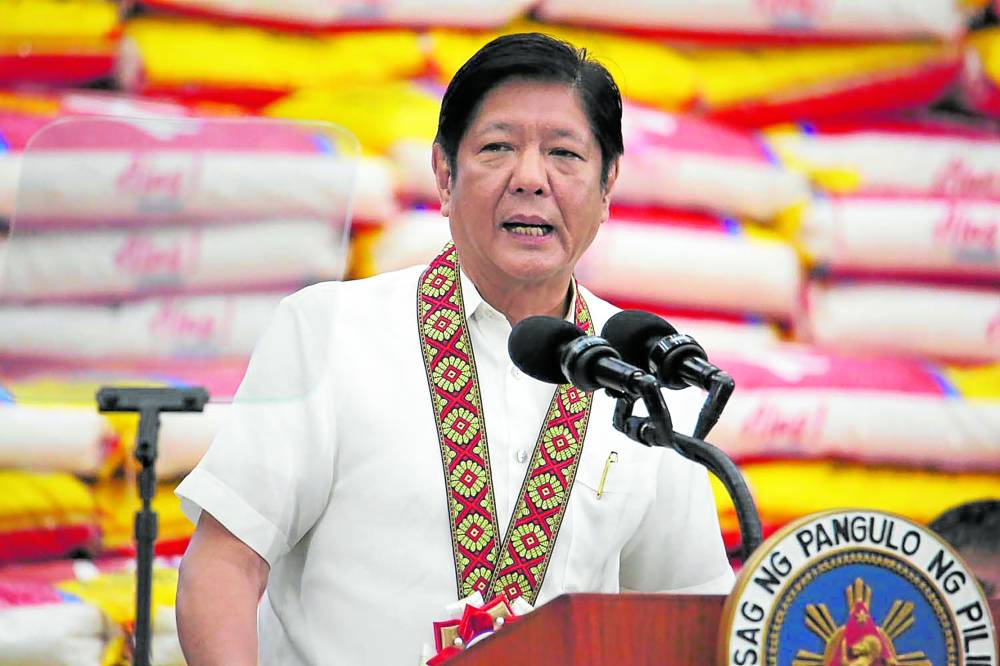Marcos: Expect rice prices to fall further

President Ferdinand Romualdez Marcos Jr. leads another round of rice distribution to around 1,000 4Ps beneficiaries in this file photo taken on October 4, 2023, in Taguig City INQUIRER file photo / NIÑO JESUS ORBETA
MANILA, Philippines — President Ferdinand Marcos Jr. on Tuesday said he is expecting rice prices to further decrease amid the current price trend happening in Southeast Asia.
According to the Presidential Communications Office (PCO) in a statement, Marcos made the pronouncement during a sectoral meeting on managing food and non-food inflation in Malacañang.
“Doon sa rice mukha namang sumusunod dun sa projections natin sa rice prices. And it seems to be consistent again with the same experience of other Asean (Association of Southeast Asian Nations) countries like Thailand and Vietnam,” the PCO quoted Marcos as saying.
(In rice, it seems to be following our projections on rice prices. And it seems to be consistent again with the same experience of other Asean countries like Thailand and Vietnam.)
“So, I think as the time goes on, that should improve,” he added.
Article continues after this advertisementAccording to the PCO, rice was the top inflation driver, contributing 1.3 percentage points to inflation.
But Vietnam and Thailand rice prices moderated last month, said the PCO, citing data for September, which showed a decline in the prices of the staple.
Furthermore, following the implementation of reduced tariffs under Executive Order No. 62, s. 2024, the landed cost of imported rice also further declined by 15 percent (around P7 per kilogram) as of mid-September.
Meanwhile, Marcos stressed that the country has to resort to sugar importation to ensure supply and stabilize prices as the retail price of refined sugar continues to be elevated at 35 percent, higher than the January 2022 level.
READ: Rice prices still high despite lower tariffs
Moreover, the PCO said recommendations of incentivizing affected hog raisers were also raised during the meeting to address the effects of the African swine fever (ASF), as well as facilitating the procurement of the remaining 450,000 doses of the ASF vaccine once stocks become available.
The Department of Agriculture was also recommended to prioritize the provision of free doses of the ASF vaccine to smallholder swine raisers, who account for more than 70 percent of the country’s swine inventory.